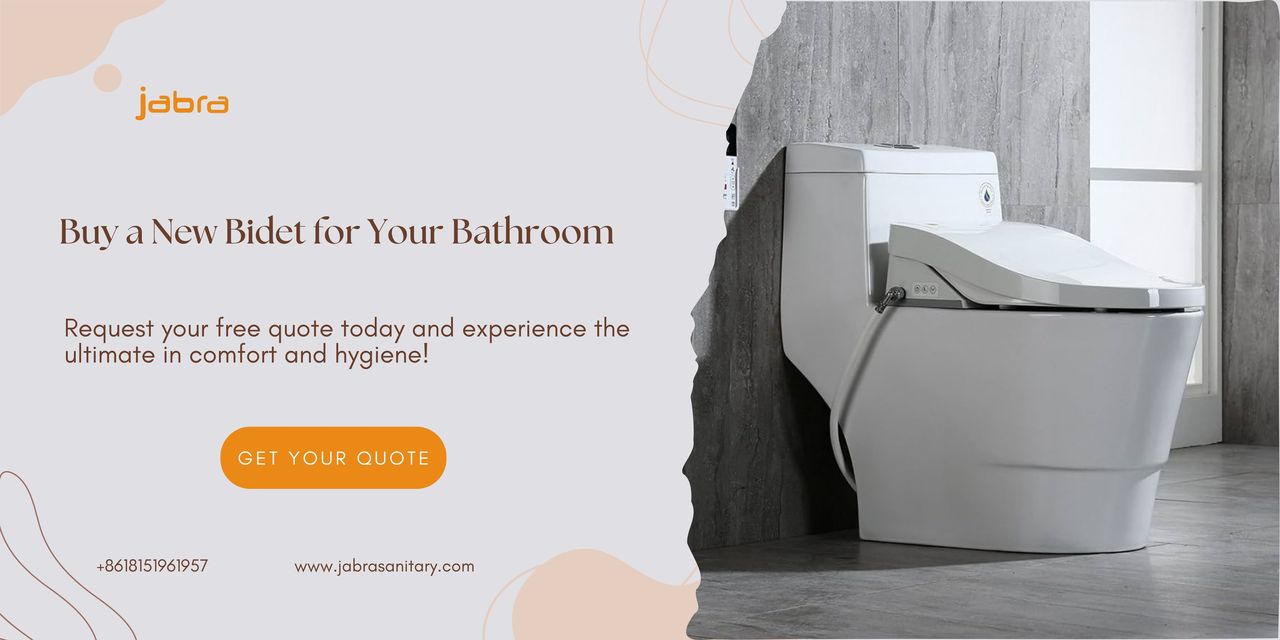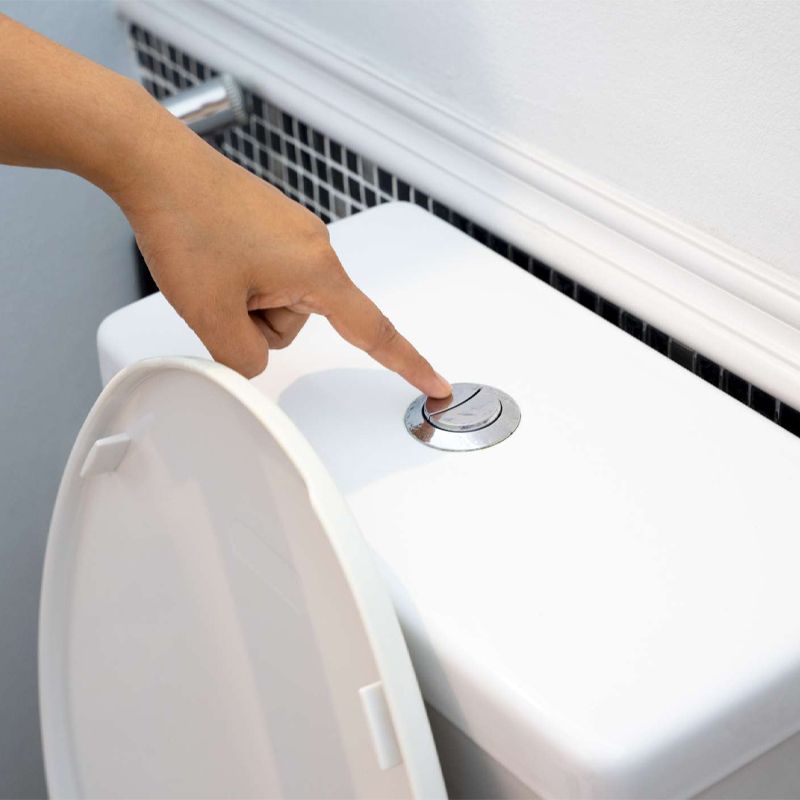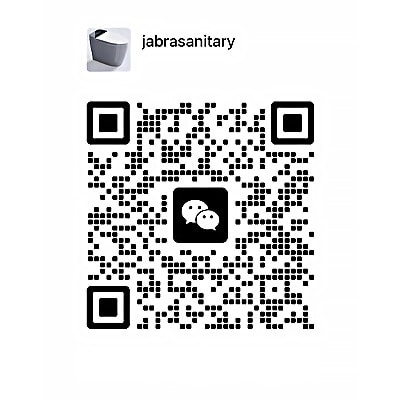 English
English
Jabra Sanitary is a sanitaryware supplier offering toilets, sinks, faucets, bathtubs, etc., at competitive prices. If you're a distributor, wholesaler, or project contractor, get a quote today!
 $23.9 Limited-time Offer
$23.9 Limited-time Offer Consignment Policy
Consignment Policy 20 Years of Experience
20 Years of Experience
A bidet is a hygienic and eco-friendly alternative to toilet paper, especially for women. It's gaining popularity for its ability to reduce irritation, provide superior hygiene, and promote genital health.
How should a woman use a bidet? This guide will walk you through how to use a bidet as a woman, ensuring comfort and cleanliness every time.
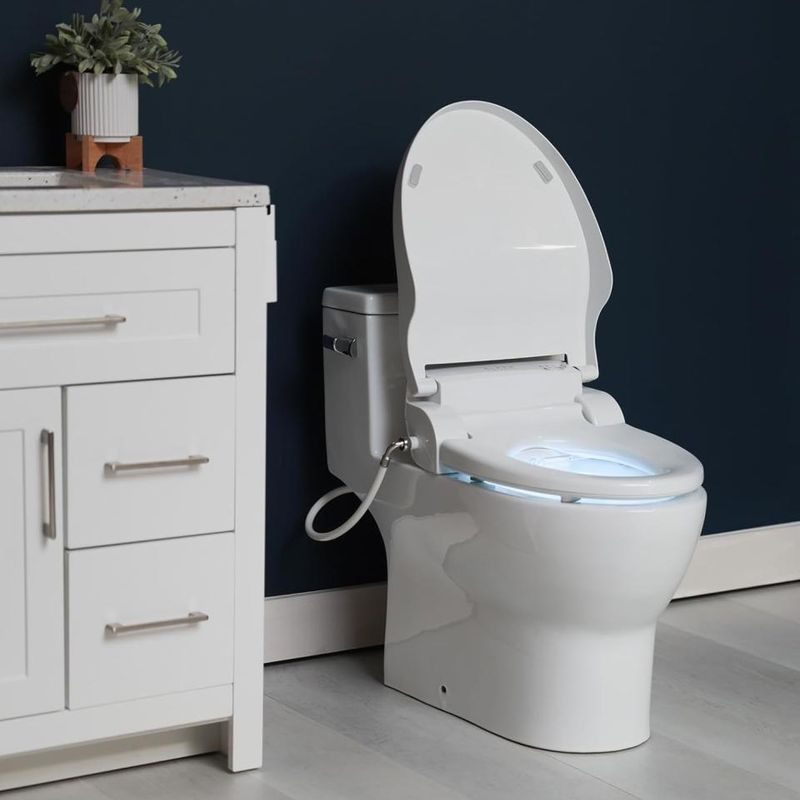
Table of Contents
Are Bidets Sanitary for Females?
How to Use a Bidet for a Woman: Step-by-Step Guide
Tips for First-Time Bidet Users
When to Use a Bidet for a Woman?
What Are the Bidet Benefits for Women?
Choosing the Right Bidet for Women
FAQs
Final Thoughts - Level Up Your Hygiene Routine with a Bidet
Are Bidets Sanitary for Females?
Regarding hygiene, bidets are one of the most sanitary options for cleaning intimate areas, especially for females.
Unlike toilet paper, which can sometimes irritate sensitive skin or spread bacteria, bidets use a gentle stream of water to cleanse. They ensure a more thorough and comfortable clean.
The clean water stream can effectively remove residue after urination or bowel movements for women. It ensures the area is fresh and free from bacteria. This is particularly beneficial for preventing urinary tract infections (UTIs) and other feminine hygiene issues.
Modern bidets come with features such as adjustable water pressure and temperature controls. These features allow for a customized experience. The water is typically filtered, providing an extra layer of cleanliness.
Additionally, bidet attachments for toilets are easy to clean and maintain. This ensures bacteria and germs don't build up in the fixture.
Overall, using a bidet for females is not only sanitary but can also improve overall genital health.
How to Use a Bidet for a Woman: Step-by-Step Guide
Using a bidet for females may seem intimidating at first, but it's quite simple once you understand the steps involved. Whether you're using a traditional stand-alone bidet or a modern bidet attachment on your toilet, the basic principles remain the same.
Here's a step-by-step guide on how to use a bidet as a woman for effective cleaning and hygiene:
Step 1: Use the Toilet First
Before using a bidet, always take care of your bodily functions—urinate or have a bowel movement—while sitting on the toilet. The bidet is a cleansing tool, not a replacement for the toilet.
Step 2: Position Yourself on the Bidet
Once you've finished, you can move to the bidet. For standalone bidets, straddle the seat facing the controls or sit with your back to them. For a bidet attachment, simply remain seated on your toilet as the attachment operates directly from there.
Step 3: Adjust the Settings
For modern bidets, you'll find controls on the side of the remote. Adjust the water pressure to a level you're comfortable with.
Many bidets allow you to control the water temperature, so take a moment to find the optimal setting. Start with a gentle stream to avoid any discomfort, gradually increasing the pressure as needed.
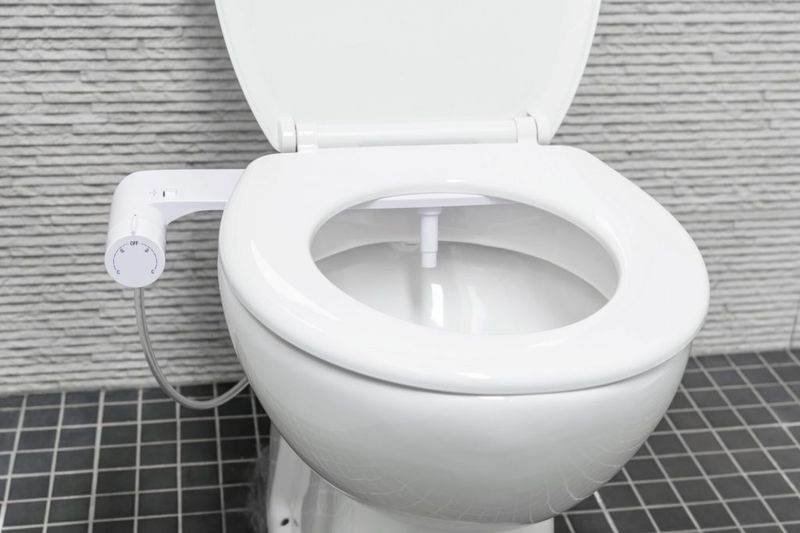
Step 4: Activate the Water Spray
Activate the bidet by pressing the button or turning the knob. The water will spray in a precise direction, typically aimed at your intimate areas.
For women, the stream is designed to clean from front to back, preventing any risk of contamination. Hold your position until the desired level of cleanliness is achieved.
Many bidets feature a self-cleaning nozzle, so you don't have to worry about hygiene.
Step 5: Use Your Hands for Guidance (If Needed)
If necessary, use your hand to help guide the water to the right areas or to adjust your position. Be sure to use clean hands to avoid any contamination.
Some women prefer gently wiping with toilet paper afterward for extra comfort. But this is optional since the bidet effectively removes most residue.
Step 6: Dry Off
Once the cleaning is complete, most bidets offer a built-in drying feature, which blows warm air onto the cleaned area.
If your bidet doesn't have this function, use toilet paper or a soft towel to gently pat yourself dry. It's important not to rub the area, as it can irritate.
Step 7: Clean and Maintain the Bidet
After use, make sure to rinse any parts of the bidet that might have come into contact with water or skin.
For standalone bidets, clean the nozzle regularly. For bidet attachments, most come with self-cleaning nozzles to keep things sanitary.
It's important to maintain your bidet regularly to ensure optimal hygiene and longevity.
By following these simple steps, using a bidet for females becomes an effortless and hygienic part of your bathroom routine.
Tips for First-Time Bidet Users
If you're using a bidet for the first time, the experience may feel unfamiliar at first. But with a few simple tips, you can quickly get comfortable and enjoy the many benefits a bidet offers.
Here are some essential tips for first-time bidet users, especially women:
Start Slow with Water Pressure
When using a bidet for the first time, always begin with the lowest water pressure setting. This will allow you to get used to the sensation of water spraying without feeling overwhelmed.
Gradually increase the pressure until you find a level that's comfortable for you.
Positioning is Key
Proper positioning is crucial for effective cleaning. For stand-alone bidets, make sure you sit comfortably either facing or with your back to the controls. It depends on the type of bidet.
For bidet attachments, simply remain seated on the toilet and adjust your body to ensure the water stream hits the right areas. Don't be afraid to shift positions slightly if needed.
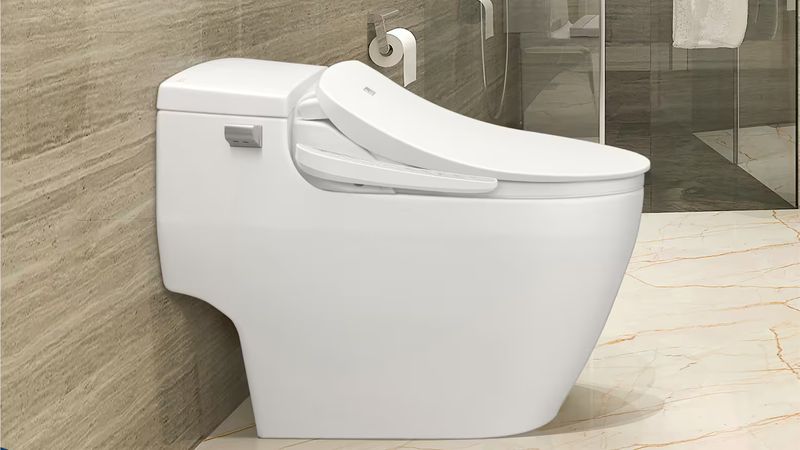
Use the Adjustable Features
Modern bidets come with various features such as adjustable water temperature and angle controls. Start with lukewarm water and gradually adjust the temperature for comfort.
If your bidet has an adjustable nozzle, make sure it is aimed correctly for maximum cleanliness.
Take Your Time
It may take a few tries to perfect the technique. Don't rush through the process. Give yourself time to adjust to the sensation and make sure you're thoroughly clean.
Bidets offer a more thorough cleaning than toilet paper. So take advantage of this by using it as part of a relaxed and self-care routine.
Wipe (Gently) If Needed
After using the bidet, you might want to use a small amount of toilet paper to gently pat dry the area. Avoid wiping vigorously, as this can irritate you.
Alternatively, use the bidet's drying feature if available.
Clean the Bidet After Use
For hygiene, it's important to clean your bidet regularly. After each use, rinse the nozzle with water to ensure it's free of any residue.
For stand-alone bidets, use mild soap and water to clean the seat and surrounding area.
When to Use a Bidet for a Woman?
A bidet is a versatile and effective tool that can be used in various situations to maintain optimal hygiene for women.
Here are the most common times when using a bidet for a woman is particularly beneficial:
Daily Hygiene
For everyday use, a bidet can help maintain cleanliness after urination or bowel movements.
The gentle stream of water ensures a more thorough clean than toilet paper, reducing the risk of irritation or infection. It's an excellent way to feel refreshed and clean throughout the day.
During Menstruation
During menstruation, a bidet can be a lifesaver. It provides a soothing and hygienic way to clean the genital area, helping to prevent irritation from sanitary products.
The water stream can also help wash away menstrual blood, ensuring comfort and cleanliness between period changes.
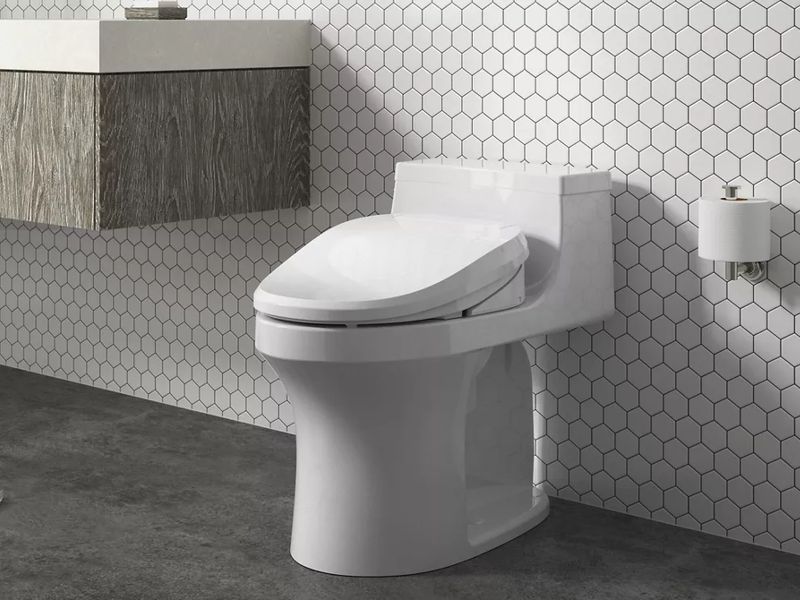
Postpartum Recovery
After childbirth, a woman's body requires extra care, especially in the genital area.
Using a bidet can help relieve discomfort, reduce the risk of infection, and provide gentle cleaning for the sensitive areas affected by childbirth. It's useful during the healing process, helping to maintain hygiene without the need for harsh wiping.
After Intercourse
Post-coital hygiene is another situation where a bidet can be beneficial. It helps cleanse the genital area of any bodily fluids, reducing the risk of urinary tract infections (UTIs) or other infections. Using a bidet after sex promotes a sense of freshness and comfort. It also can prevent bacterial buildup.
What Are the Bidet Benefits for Women?
Using a bidet offers numerous advantages for women, providing a higher level of hygiene, comfort, and care compared to traditional toilet paper. Here are some of the key benefits:
Enhanced Cleanliness
A bidet offers a superior level of cleanliness by using a gentle stream of water. The water is used to effectively cleanse the genital and anal areas after urination or bowel movements.
Unlike toilet paper, which may leave residue behind, a bidet ensures a more thorough and hygienic cleaning.
Gentler on Skin
For women with sensitive skin, bidets are far gentler than rough toilet paper. The soft and controlled water stream minimizes friction and irritation.
It is especially helpful for women with conditions like hemorrhoids, skin allergies, or other sensitivities. The water's soothing nature also prevents chafing or redness, which can occur from excessive wiping.
Reduces Risk of Infections
Using a bidet can significantly reduce the risk of urinary tract infections (UTIs) and other bacterial infections. The bidet cleans from front to back, preventing harmful bacteria from spreading to the urethra. Additionally, the more thorough cleaning reduces the chances of vaginal irritation and bacterial buildup that can lead to infections.
Menstrual Hygiene
A bidet is especially beneficial during menstruation. It provides a gentle and soothing wash to remove menstrual blood and keep the genital area fresh. This can help prevent odors and irritation caused by sanitary products.
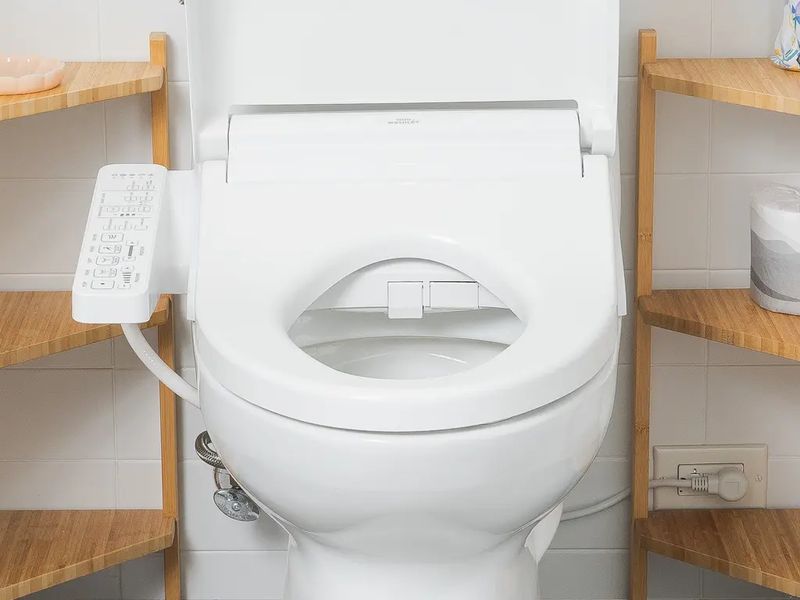
Postpartum Care
After childbirth, a bidet can be a gentle and effective way to maintain hygiene during recovery. It helps cleanse the perineal area without causing discomfort or irritation. The soothing water stream can reduce swelling and promote faster recovery, making it a valuable tool for postpartum care.
Choosing the Right Bidet for Women
When selecting a bidet to buy, here are some key factors to keep in mind:
Features to Look For
- Adjustable Water Pressure and Temperature: This allows for a customizable experience, especially during menstruation or postpartum recovery.
- Ergonomic Design: A bidet with a well-designed seat, such as a V-shaped or U-shaped model, ensures a comfortable fit. It also reduces pressure on sensitive areas.
- Self-Cleaning Nozzle: This feature promotes hygiene by ensuring the nozzle remains clean and germ-free after each use.tang'shang
- Heated Seats: Heated bidets are ideal for comfort, especially in colder climates. They also provide a more luxurious experience.
- Remote Control: For convenience, a remote control for adjusting settings such as water pressure, temperature, and nozzle position can make the bidet easier to use.
Recommended Bidet Models
- Heated Bidet J-1201: Offers temperature control for both water and the seat, providing ultimate comfort.
- Japanese Toilet Bidet J-1033: Known for its advanced features, including adjustable water pressure and temperature, ideal for a premium experience.
- Remote Control Bidet J-1034: Allows precise adjustments through a user-friendly remote, perfect for those who prefer full control.
- Self-Cleaning Bidet V02: Features an automatic self-cleaning nozzle for maximum hygiene.
- Electric Bidet Seat V-shaped & U-shaped: Offers a comfortable and ergonomic design with multiple features.
FAQs
Here are some commonly asked questions about bidets:
Can bidets cause infections?
No, bidets, when used correctly, do not cause infections. They can help reduce the risk of urinary tract infections (UTIs) and other bacterial issues compared to toilet paper.
It's essential to use clean water and regularly maintain the bidet for optimal hygiene.
Is it safe to use a bidet during pregnancy?
Yes, using a bidet during pregnancy is safe and can be particularly beneficial. The gentle water stream helps maintain hygiene without irritation, especially as the body changes.
It can provide relief for pregnant women dealing with hemorrhoids or general discomfort in the genital area.
What is the best bidet for elderly women?
For elderly women, the best bidet is one that's easy to use and offers comfort. A bidet with a remote control, adjustable water pressure, and a heated seat can provide convenience and comfort.
Bidets with ergonomic designs and self-cleaning nozzles are ideal for reducing strain and maintaining hygiene.
How do you use a bidet after pooping?
Simply sit on the bidet, adjust the water temperature and pressure to your liking, and activate the stream. The water should gently clean the anal area.
Gently pat dry with toilet paper if necessary, or use the bidet's drying function.
Does a bidet use a lot of water?
No, bidets use very little water compared to the amount used for flushing a toilet. On average, a bidet uses about 0.5 to 1.5 liters of water per use, which is much more water-efficient than toilet paper.
Final Thoughts - Level Up Your Hygiene Routine with a Bidet
Leveling up your hygiene routine with a bidet can significantly enhance your life as a woman. It is beneficial for daily cleanliness, menstrual care, postpartum recovery, or general comfort.
You can also take advantage of the customizable features of bidets like adjustable water pressure, heated seats, and self-cleaning nozzles.
Overall, investing in a bidet is a smart choice for both health and convenience. If you want to buy a bidet, please contact us - Your reliable bidet supplier!







